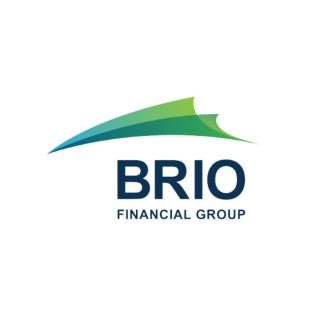
Easy Ways to Financial Health
by Brandon Miller on Apr 1, 2019
We all have our own unique way of handling our finances. While some of us are natural born savers, others may have a hard time making it to the next paycheck. Fortunately, most of us fall somewhere in-between, putting away money at times, while making frivolous purchases at other times.
If you are looking for a better, more effective way to bolster your savings, here are a few suggestions that are easy to follow and will have you on the path towards a more sustainable savings balance in no time:
- Direct Deposit. While it’s likely that you’re getting paid via direct deposit, make arrangements to have money deposited directly into your savings account as well. That way the money bypasses your wallet completely. You won’t miss what you don’t have and your savings account can grow much faster.
- Declutter. Decluttering is the latest trend and it’s making a lot of people tackle areas like their closets, their attic, their basement, or their self-storage unit. While the process of decluttering alone will make you feel more organized and in control, it can also bring you a few extra dollars as well. Remember, one person’s trash is another person’s treasure. And by the way, put that money into your growing savings account.
- Review your bank and credit card statements regularly. I know, we’re all supposed to do this, but with online banking, many of us skip this step. But this is important, particularly for your main bank account. Make an inventory of everything that you spend money on. Make two columns; one for recurring expenses such as rent or mortgage payments, car payments, or student loans. The other is for everything else that you’ve spent money on for the month. The totals will likely shock you, but it will do something else as well. It will show you exactly what you’re spending your money on and where you can make cuts. After all, do you really need to spend $500.00 a month eating out?
- Splurge. I know that sounds counterintuitive, but it all depends on what you’re splurging on. Like dieting, we don’t want to feel deprived, or we’ll end up spending our money on a big-ticket item that catches our eye but doesn’t really provide any real satisfaction. But instead of heading to the mall, splurge on an experience instead, like a weekend in the country, concert tickets, or even a deluxe five-course dinner. The experience will stay with you much longer than any big-ticket item, and it may even provide you with some encouragement to stay the course.
- Find inventive ways to save. There are a ton of apps on the market that allow you to save money or even invest in partial stocks. Have an amount automatically deducted from your bank account weekly and watch as your small investment grows. It may even encourage you to start investing in stocks and bonds.
Remember, saving money doesn’t have to be painful. By reducing or eliminating impulse buying, you’ll start to see just how much (or how little) you need to be happy.
This content is developed from sources believed to be providing accurate information. The information provided is not written or intended as tax or legal advice and may not be relied on for purposes of avoiding any Federal tax penalties. Individuals are encouraged to seek advice from their own tax or legal counsel. Individuals involved in the estate planning process should work with an estate planning team, including their own personal legal or tax counsel. Neither the information presented nor any opinion expressed constitutes a representation by us of a specific investment or the purchase or sale of any securities. Asset allocation and diversification do not ensure a profit or protect against loss in declining markets. This material was developed and produced by Advisor Websites to provide information on a topic that may be of interest. Copyright 2025 Advisor Websites.
The opinions expressed in this article are for general informational purposes only and are not intended to provide specific advice or recommendations for any individual or on any specific security. It is only intended to provide education about the financial industry. To determine which investments may be appropriate for you, consult your financial advisor prior to investing. Any past performance discussed during this program is no guarantee of future results. Any indices referenced for comparison are unmanaged and cannot be invested into directly. As always please remember investing involves risk and possible loss of principal capital; please seek advice from a licensed professional.
Brio Financial Group is a registered investment adviser. Advisory services are only offered to clients or prospective clients where Brio Financial Group and its representatives are properly licensed or exempt from licensure. No advice may be rendered by Brio Financial Group unless a client service agreement is in place.
